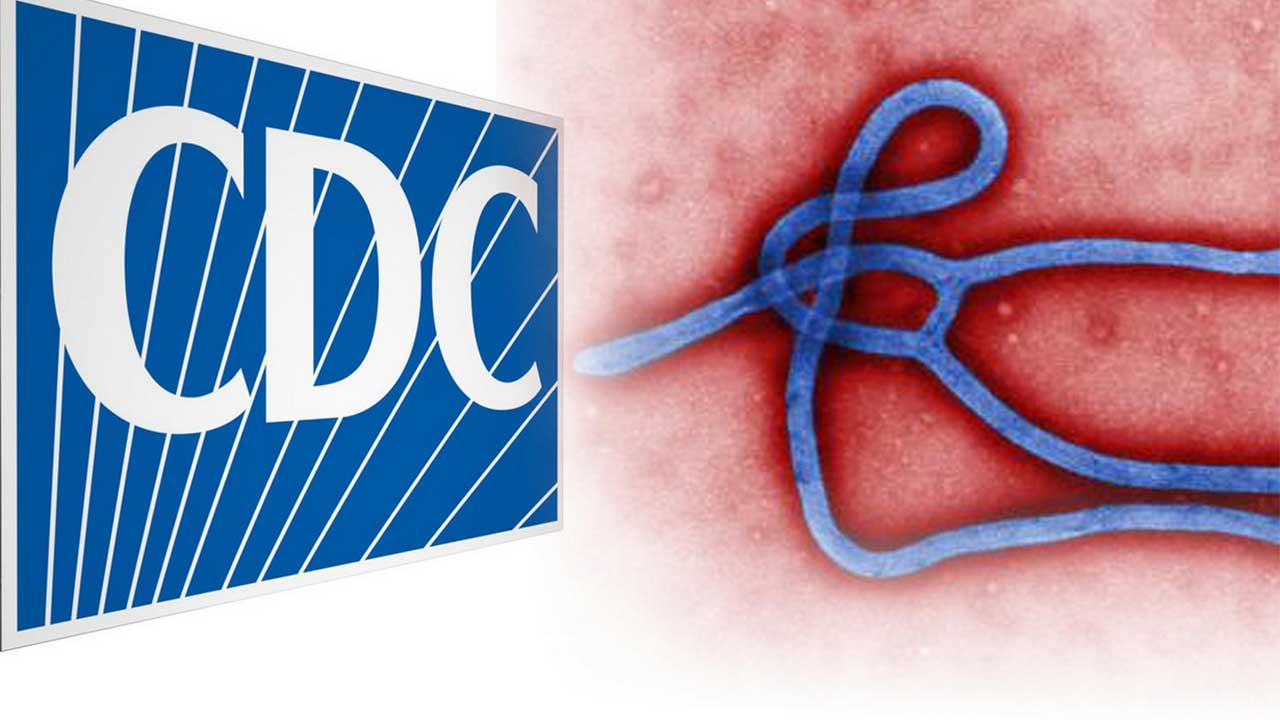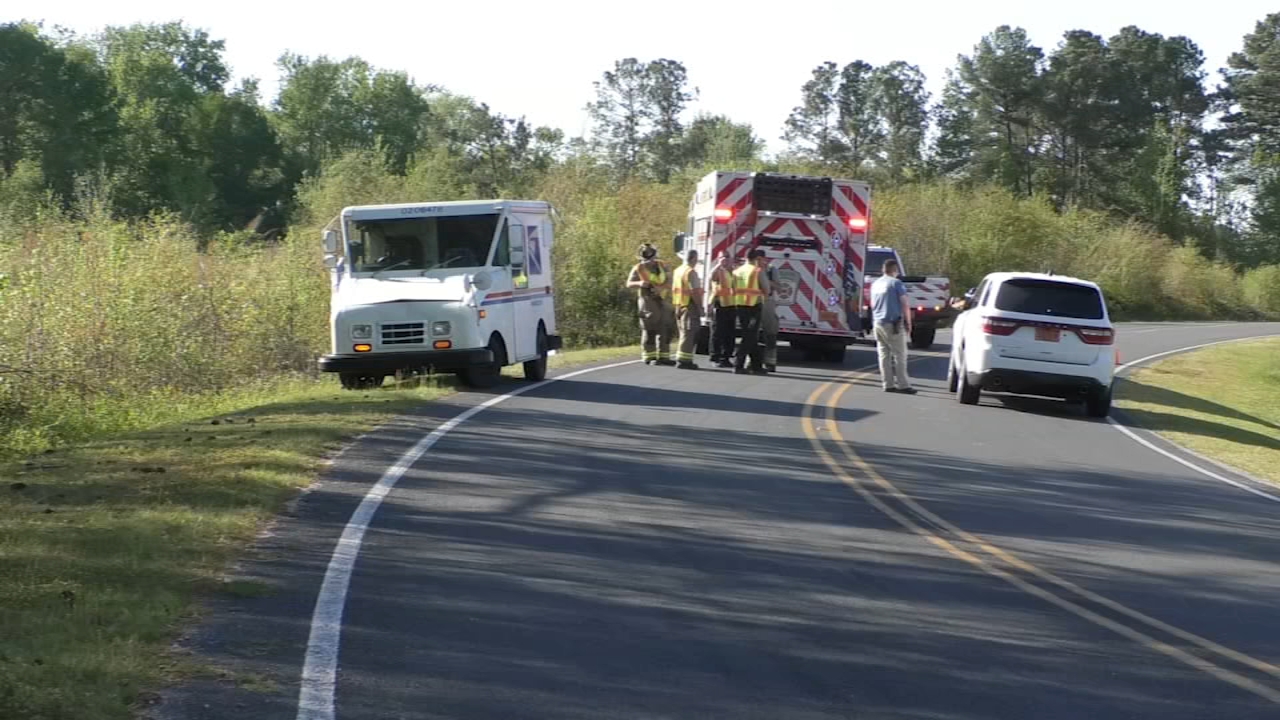Governor McCrory: No known or suspected cases of Ebola in North Carolina

RALEIGH (WTVD) -- North Carolina Governor Pat McCrory said Monday that there are no known - or suspected - cases of Ebola in the state. That being said, McCrory said state officials, including those with the Department of Health and Human Services, are preparing for the possibility that a patient could be diagnosed with the disease.
"I would rather be underwhelmed than overwhelmed and be prepared," offered Governor McCrory Monday afternoon at a news conference. "For months, Secretary Wos and her team have been diligently working with medical providers, county health departments and the military to be prepared should an Ebola case be diagnosed in North Carolina. We are in constant contact with our federal, state and local partners to be on top of this rapidly evolving medical situation."
At his side in that news conference was a response team assembled within the past few weeks. That included leaders in public health, environment, military, emergency management, even transportation.
"We want to make sure all of our personnel are trained to prepare and identify, make the proper call and then get accountability of who is on site should an Ebola victim be at a point of entry in the state," said the state's Secretary of Transportation, Tony Tata.
While communication on state readiness is crossing state agencies, it was State Epidemiologist Dr. Megan Davies, who fielded most of the questions in that news conference. Dr. Davies has had experience in dealing with responses to SARS, anthrax, H1N1 and said health facilities across the state have been on alert since July.
"At least 70 of just over 100 hospitals in the state have actively exercised some aspect of their preparations for Ebola," said Dr. Davies. She also said that while they can't quite make these procedures mandatory statewide, she's confident all healthcare facilities will and are doing the right thing.
In addition to the work of state officials, Triangle hospitals are also doing Ebola training exercises to minimize the risk to health care workers and the public if there is a case.
Health care workers at WakeMed are training twice weekly on how to properly care for patients infected with Ebola, should the deadly disease surface in the Triangle.
Nurses, doctors, and other medical personnel are going through skill set training, learning how to suit up and take off their protective gear.
Steve Harrison with WakeMed EMS leads the training sessions. He said it's a meticulous protocol they follow to be sure healthcare providers don't spread the disease any further.
"Making sure that we do every step very slow and very methodical," he said.
It starts with screening patients for Ebola when they come to WakeMed for healthcare. Nathan Funk, WakeMed Environmental Health and Safety Officer, said they're looking for symptoms like vomiting, diarrhea, profuse bleeding or sweating.
If staff suspect a patient is infectious, they already have identified areas of the hospital to isolate them and suit up for further treatment. Nurses are training now on how to carry out simple tasks like IV insertion, while wearing three sets of gloves and other restrictive gear.
"It's been very useful to them," said Funk. "They appreciate it. I don't think we're anywhere near the Emory's or Nebraska's of the world that actually do this day in and day out, but I think we have made a lot of good strides."
Harrison said they're fine-tuning protocol daily at WakeMed, even adding steps to the existing guidelines from the CDC.
"The main thing they're saying is follow our baseline," he explained. "And if you want to go above and beyond that you can also do that. And that's what we're doing."
Clayton-based FastMed Urgent Care tells ABC11 they're also preparing for Ebola.
Reuel Heyden, FastMed Director of Marketing, said Monday all providers across the state are following the recommended guidelines from the CDC and NCDHHS.
Heyden said FastMed's role is to screen, identify and respond. They are coordinating and communicating with local hospitals should they receive a patient potentially infected with Ebola.
Duke University Hospital's Infectious Disease Specialist Dr. Cameron Wolfe says Duke's Urgent Care facilities are also prepared for Ebola. Staff are trained to screen patients by asking whether they've traveled outside the U.S. in the last three weeks, where specifically they've traveled, and their symptoms.
"You've gotta be able to identify that this is a risk," said Wolfe. "And when you do identify the patient, then you need to know your chain of command to escalate their care."
Wolfe says no matter what type medical care is being provided, right now, everyone has the same responsibilities at the outset to screen and identify potentially infectious patients.
At Daniels and Peck Family Medicine in North Raleigh, Dr. Martha Peck says she's always looking for patients' symptoms and any ties to Ebola. However, she's more concerned right now about spreading public awareness of the deadly disease and educating the public.
"I think we would have some time to prepare if the first outbreak were to occur in North Carolina," she said. "We would know when and where and could get up to speed pretty fast."
An Ebola hotline has been established to help answer any questions or concerns the public may have. The number is (800) 222-1222.
Federal health officials continue to investigate the case of a Dallas health worker who treated an Ebola patient and ended up with the disease herself.
Many are wondering how it happened as these are professionals and this is the United States, where the best conditions and protective gear are available, unlike in West Africa, where the Ebola epidemic is raging in much poorer conditions.
The health worker wore protective gear while having extensive contact with Thomas Eric Duncan, the Liberian man who died Wednesday of Ebola at Texas Health Presbyterian Hospital.
Officials say she has not been able to pinpoint any breach in infection control protocols, although there apparently was a breach, they say.
Experience shows that health workers can safely care for Ebola patients, "but we also know that it's hard and that even a single breach can result in contamination," Dr. Thomas Frieden, director of the Centers for Disease Control and Prevention, said Sunday on CBS' "Face the Nation."
The situation also raises fresh concerns about whether any U.S. hospital can safely handle Ebola patients, as health officials have insisted is possible.
Some questions and answers about the new case:
Q: WHAT PROTECTION DO HEALTH WORKERS HAVE?
A: The exact gear can vary. A hazardous material type suit usually includes a gown, two sets of gloves, a face mask, and an eye shield. There are strict protocols for how to use it correctly.
"When you put on your garb and you take off your garb, it's a buddy system," with another health worker watching to make sure it's done right, said Dr. Dennis Maki, University of Wisconsin-Madison infectious disease specialist and former head of hospital infection control.
Q: HOW MIGHT INFECTION HAVE OCCURRED?
A: Officials are focusing on two areas: How the garb was removed, and the intensive medical procedures Duncan received, which included kidney dialysis and a breathing machine. Both involve inserting tubes - into blood vessels or an airway. That raises the risk a health worker will have contact with the patient's bodily fluids, which is how Ebola spreads.
"Removing the equipment can really be the highest risk. You have to be extremely careful and have somebody watching you to make sure you remember all the steps," said Dr. Eileen Farnon, a Temple University doctor who formerly worked at the CDC and led teams investigating past Ebola outbreaks in Africa.
"After every step you usually would do hand hygiene," washing your hands with antiseptic or being sprayed with a chlorine spray, she said.
Q: HOW ELSE COULD INFECTION HAVE HAPPENED?
A: Some of the garb the health worker takes off might brush against a surface and contaminate it. New data suggest that even tiny droplets of a patient's body fluids can contain the virus, Maki said.
"I can have on the suit and be very careful, but I can pick up some secretions or body fluids on a surface" and spread it that way, he said.
Q: CAN ANY U.S. HOSPITAL SAFELY TREAT EBOLA PATIENTS?
A: Frieden and other health officials say yes, but others say the new case shows the risks.
"We can't control where the Ebola patient appears," so every hospital's emergency room needs to be prepared to isolate and take infection control precautions, Maki said.
That said, "I don't think we should expect that small hospitals take care of Ebola patients. The challenge is formidable," and only large hospitals like those affiliated with major universities truly have enough equipment and manpower to do it right, Maki said.
"If we allow it to be taken care of in hospitals that have less than optimal resources, we will promote the spread," he warned.
The case heightens concern for health workers' safety, and nurses at many hospitals "are alarmed at the inadequate preparation they see," says a statement from Rose Ann DeMoro, executive director of the union, National Nurses United.
Q: SHOULD EBOLA PATIENTS BE TRANSFERRED TO ONE OF THE SPECIALIZED CENTERS THAT HAVE TREATED OTHERS IN THE U.S.?
A: Specialized units are the ideal, but there are fewer than half a dozen in the nation and they don't have unlimited beds. "It is also a high-risk activity to transfer patients," potentially exposing more people to the virus, Farnon said.
Q. WHAT IS CDC RECOMMENDING THE HOSPITAL DO?
A. Training has been ramped up, and the CDC now recommends the hospital minimize the number of people caring for an Ebola patient, perform only procedures essential to support the patient's care, and name a fulltime infection control supervisor while any Ebola patient is being cared for. Frieden also said the agency was taking a new look at personal protective equipment, "understanding that there is a balance and putting more on isn't always safer - it may make it harder to provide effective care."
___
Online:
CDC Ebola advice: http://tinyurl.com/nxghaf9
Protective equipment: http://tinyurl.com/qdpk8ak
The Associated Press contributed to this report.













